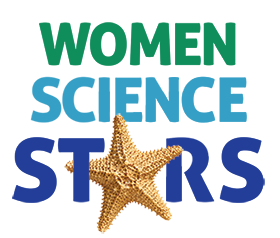It’s easy to understand why kids grow up and want to be movie stars, athletes or rock stars. But when today’s women environmental scientists began their careers — not only wasn’t it glamorous — most people didn’t know why it should matter. In fact, before 2000, girls were commonly expected to be “bad at science.” Happily, today it’s a different story. We’re taking a closer look at what made eight of our region’s top environmental scientists excel. Over three issues, you’ll hear their stories.
[easymedia-gallery med=”6612″ size=”150,150″ align=”center”]1. Describe your job and what makes it rewarding
Holly Greening, executive director of the Tampa Bay Estuary Program — As the leader of TBEP since 2008, Holly has been a driving force in the organization since its inception 25 years ago.
What keeps me inspired is being a part of the incredible collaboration of the Tampa Bay science, management and policy community, working together to restore Tampa Bay—and seeing the visible improvements in Tampa Bay’s water quality and natural resources.
Kimberly Yates, PhD, U.S. Geological Survey — In her job as senior research oceanographer at the Coastal and Marine Science Center, Kimberly specializes in carbonate geochemistry and biogeochemistry. She’s the co-chair of the Ocean Carbon and Biogeochemistry – Ocean Acidification Subcommittee, and a member of the Southeast Ocean and Coastal Acidification Network.
My research focuses on the impact of carbon cycling and climate change on coastal ecosystems using a combination of field and laboratory research.
Every single time I make an observation or a measurement, and I’m able to use that information to answer a question or solve a problem, it is rewarding. One of the important aspects of my job is building a successful team. Most scientific projects only get accomplished through the dedication of a team who works hard together, often in adverse conditions at sea, through long hours in a laboratory, and over months of data analysis and report writing. Every success along the way makes me proud to work with these great people who care about making a difference.
2. What inspired you to choose environmental science? Was a special person or event involved?
Holly: I was initially inspired after reading Lady with a Spear by Eugenie Clark when I was about 10 years old. It was solidified when I took a marine biology college class at Daytona Beach College taught by Elton Woodward while I was a senior in high school. I was inspired by my parents when I was a kid and I couldn’t stay out of the water. The idea of both understanding the interactions of life in the oceans and bays and finding ways to protect and restore healthy oceans/bays has always been very intriguing.
Kimberly: I can’t remember ever considering any career other than science. My parents taught me an appreciation of nature and conservation through a very active life of outdoor recreation, especially on the water. I developed an insatiable curiosity about how nature works, and my favorite place was anywhere on or near the ocean. I couldn’t decide whether I wanted to pursue a college degree in biology, chemistry, or physics. I discovered that by choosing a career in the earth sciences, I could have a career in all three.
3. What has been the most difficult challenge you faced?
Holly: Besides that genetics class when I was a junior??? Overcoming my fear of public speaking. A colleague told me to remember that I knew more about my topic than anyone else in the room, which helped a little…. But it still took years to be comfortable.
Kimberly: Careers in science are often very demanding, and those who pursue it usually do so because they love it. This means we are very dedicated to our work. The most difficult challenge is keeping a healthy balance between work and personal time.
[su_note note_color=”#d2f4e4″ text_color=”#000000″]
In the next two issues, you’ll hear from:
- Susan Bell, professor, University of South Florida, Dept. of Integrative Biology
- Suzanne Cooper, (retired) principal environmental planner of Tampa Bay Regional Planning Council
- Sarina Ergas, professor, University of South Florida, Dept. of Civil & Environmental Engineering
- Margaret “Penny” Hall, PhD, research scientist, Florida Fish and Wildlife Research Institute
- Kelli Hammer Levy, division manager, Pinellas County Natural Resources